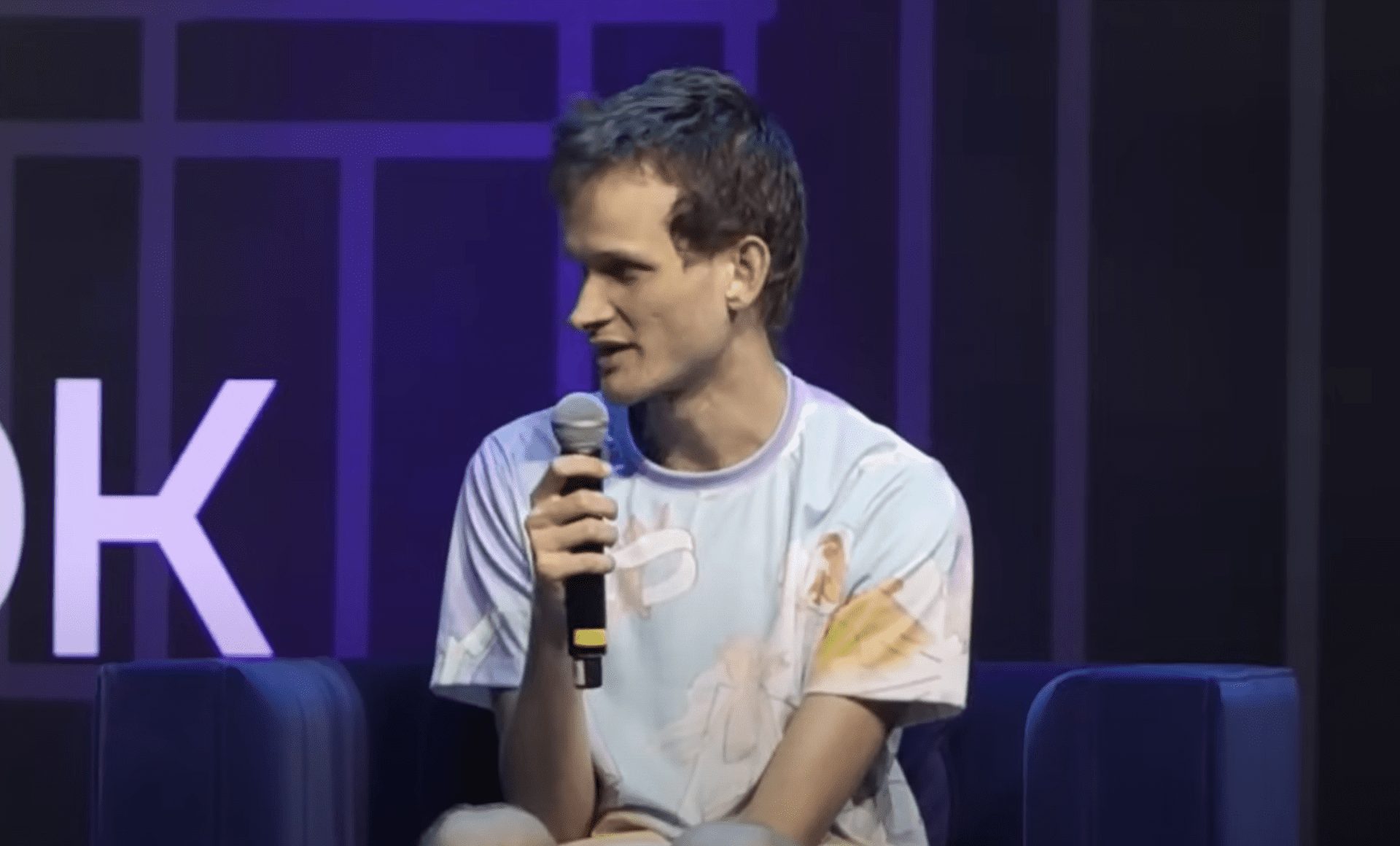Vitalik Buterin, co-founder of Ethereum, has shared an extensive vision for a future rooted in “decentralized and democratic differential defensive acceleration.” He cautions that the rise of superintelligent AI poses significant existential risks unless humanity adopts a thoughtful balance of protective technologies, transparency, and robust regulatory frameworks.
Concerns Over AI Risks
In a recent blog entry, Buterin stresses that the situation is precarious, especially with the potential arrival of artificial superintelligence within the next five years. He notes, “If we don’t want the world to suffer irreversible damage, we must not only speed up the positive developments but also carefully regulate the negative ones.” This includes enacting powerful regulations that might not please everyone.

He advocates for a balanced approach that pairs rapid technological growth with readiness, urging the creation of safeguards that do not rely on the assumption that beneficial entities will always maintain control. Buterin warns that an unchecked race in AI or biotech could lead to tools that benefit militaries or malicious entities instead.
As a notable illustration, he envisions a society where diseases that could have caused widespread issues in the past are effectively managed through community-based systems like open-source air monitoring and rapid vaccine updates. “The shared values that inspired Ethereum and crypto can be leveraged to address wider societal challenges,” he explains.
At the core of Buterin’s defense strategy is his concept of “d/acc,” which aims to empower individuals over centralized entities in determining access to vital resources. He emphasizes the necessity for team-building efforts to foster an environment that avoids conflict and ensures a fair governance model.
He also points out the significant hazards presented by central authorities overseeing AI, referencing the Covid pandemic and the controversial gain-of-function research linked to various governments. He argues that central regulation often leads to catastrophic missteps rather than providing effective solutions.
Proposed Defense Mechanisms
Buterin dedicates a significant portion of his writing to two main regulatory strategies aimed at addressing advanced AI risks. The first involves liability: “Shifting the responsibility to users presents strong incentives to develop AI responsibly,” he states, suggesting that individuals using AI systems should bear the burden of consequences for any harm caused by these systems.
Even as he acknowledges complexities with open-source technologies and military applications, he maintains that a liability system can be generalized without excessive constraints that stifle innovation. “Many users might not be liable, but the broader customer base of AI providers can push for safer practices,” he notes, suggesting this may encourage safer AI research paths.
His second proposal is even bolder. “If more stringent measures are necessary, I would propose a global ‘soft pause’ on high-capacity hardware,” he illustrates. He envisions a requirement for multiple international organizations to issue weekly signatures for certain chips vital for developing or operating near-superintelligent AI systems.
“This would help balance benefits against risks,” he says, proposing that a substantial reduction in the world’s computing resources for a year or two could give humanity essential time to address growing AI threats.
Buterin argues that implementing such a sweeping pause would be challenging but necessary, as it would prevent unauthorized operation of devices across the board. He admits the difficulty of achieving global consensus on such measures, stressing it would require dedicated effort towards cooperation.
Linking his ideas on AI risks to broader Ethereum principles, he asserts that the core values inspiring Ethereum can be applied beyond the crypto sphere. He suggests that decentralized tools, like prediction markets, could serve as vital defenses against misinformation and public panic, especially if integrated with privacy-enhancing technologies.
Furthermore, he identifies the need for technologies such as formal verification and secure hardware as essential components of a robust defense against AI threats, highlighting the multitude of ways an AI takeover could manifest. He emphasizes the importance of bio-defense, cyber-defense, and information defense in creating a secure infrastructure the Ethereum community can contribute to.
Buterin considers funding for decentralized projects a critical issue, expressing confidence in innovative funding strategies like “strong decentralized public goods funding” to support essential initiatives such as open-source vaccines and encryption tools. “Mechanisms like quadratic funding aim to support public goods neutrally and broadly,” he elaborates, even though he recognizes the challenges traditional systems face, which may favor flashier projects instead.
His “deep funding” model proposes allowing AI systems to evaluate which projects deserve financial backing through a interconnected network, enabling donors to see each project’s relationship to others. “Using a competitive AI landscape reduces bias and allows for community-driven support,” he asserts, emphasizing the unifying potential of crypto innovation.
Throughout his blog, Buterin revisits the idea that relying solely on either defensive or overly centralized strategies could lead to failure. He points out the dual dangers of trying to halt research entirely while also cautioning against placing too much trust in centralized organizations, referencing WHO’s missteps during the Covid crisis as an example. “Decentralization is key to addressing inherent risks,” he insists.
Concluding his thoughts, Buterin encourages readers to recognize technology’s dual nature as both a threat and an empowering tool, depending on its management. “We, humans, remain capable of brilliance,” he asserts, maintaining that global collaboration and decentralized efforts are essential to navigating the future filled with the challenges and advancements posed by superintelligent AI.
“By possessing the necessary tools, we can adapt and enhance both our biology and environment while safeguarding freedom,” he continues. “The journey towards a secure and free future in the 21st century is challenging but achievable.”
At the time of this report, Ethereum’s market value was $3,639.





